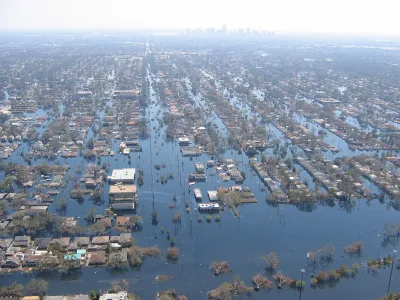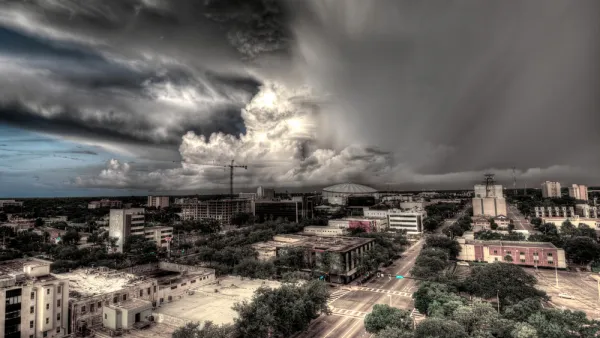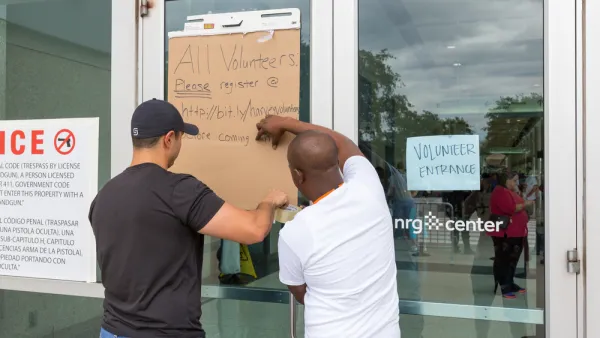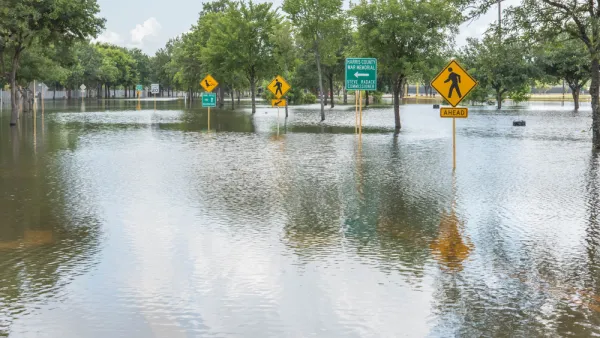In response to a question linking Hurricanes Irma and Harvey to climate change, White House Homeland Security Advisor Tom Bossert appeared to recognize the need to adapt. He qualified his statement regarding the "cause" of said climate change.

Thanks to a reporter who asked the obvious but rare question of how climate change relates to two devastating Category 4 hurricanes in less than two weeks, we now know that the Trump administration "is ignoring the underlying causes of climate change while also trying to address, in the aftermath of two intense hurricanes, its potential causes," observed Washington Post energy and environmental policy reporter,
according to journalist Michael Kinsley, founding editor of Slate: 'A gaffe is when a politician tells .... some obvious truth he isn't supposed to say.'"
Second, Bossert got it wrong on the rising sea level of Tampa Bay, considered to be among the most vulnerable regions to damaging floods in terms of economic damage according to the World Bank. Politifact even analyzed a Sierra Club claim, "Tampa Bay among top 10 regions most threatened by climate change."
According to The Washington Post's Darryl Fears, Bossert was correct from an historical perspective, but the increase in sea level rise accelerated after 1990.
The sea in Tampa Bay has risen naturally throughout time, about an inch per decade. But in the early 1990s, scientists say, it accelerated to several inches above normal, so much that recent projections have the bay rising between six inches and more than two feet by the middle of the century and up to nearly seven feet when it ends. On top of that, natural settling is causing land to slowly sink.
Tampa and the region suffered lots of damage from Irma, but it wasn't the nightmare it could have been. Fears updated his July article on Sept. 10, while Irma was ravaging much of the Sunshine State as a Category 3 hurricane, and Tampa Bay was bracing for a hit.
During Monday's press conference, Bossert acknowledged the need to deal with the effects of climate change, indicating that rebuilding efforts need to take increased risks into account:
"... And what I said from the podium the other day and what President Trump remains committed to is making sure federal dollars aren't used to rebuild things that will be in harm's way later or that won't be hardened against the future predictable floods that we see."
Wait a minute! Didn't Planetizen already post that thanks to Trump's executive order last month to roll back an Obama-era regulation, rebuilding won't be better, but "to the same standards that were in place before the floods?"
Natalie Thongrit of the The Bipartisan Report provides details on the Sept. 8 press conference that Bossert referenced.
"We shouldn't use federal money to rebuild in ways that don't anticipate future flood risk, so we need to build back smarter and stronger against flood plain concerns when we use federal dollars," stated Bossert.
He went on to explain that the "White House might put out another executive order or additional guidance that would essentially say the same thing as the order President Obama signed in 2015," adds Thongrit. In other words, thanks to two hurricanes, Trump may rescind his executive order that rolled back the Obama regulation in order to rewrite the Obama regulation.
Bossert did his best to try and justify Trump's actions, but it's clear that Trump was less interested in developing infrastructure and more interested in undoing Obama's efforts, especially the ones that have to do with climate change.
FULL STORY: The Energy 202: Hurricanes Harvey and Irma renew calls to ax obscure shipping law

Analysis: Cybertruck Fatality Rate Far Exceeds That of Ford Pinto
The Tesla Cybertruck was recalled seven times last year.

National Parks Layoffs Will Cause Communities to Lose Billions
Thousands of essential park workers were laid off this week, just before the busy spring break season.

Retro-silient?: America’s First “Eco-burb,” The Woodlands Turns 50
A master-planned community north of Houston offers lessons on green infrastructure and resilient design, but falls short of its founder’s lofty affordability and walkability goals.

Test News Post 1
This is a summary

Analysis: Cybertruck Fatality Rate Far Exceeds That of Ford Pinto
The Tesla Cybertruck was recalled seven times last year.

Test News Headline 46
Test for the image on the front page.
Urban Design for Planners 1: Software Tools
This six-course series explores essential urban design concepts using open source software and equips planners with the tools they need to participate fully in the urban design process.
Planning for Universal Design
Learn the tools for implementing Universal Design in planning regulations.
EMC Planning Group, Inc.
Planetizen
Planetizen
Mpact (formerly Rail~Volution)
Great Falls Development Authority, Inc.
HUDs Office of Policy Development and Research
NYU Wagner Graduate School of Public Service




























